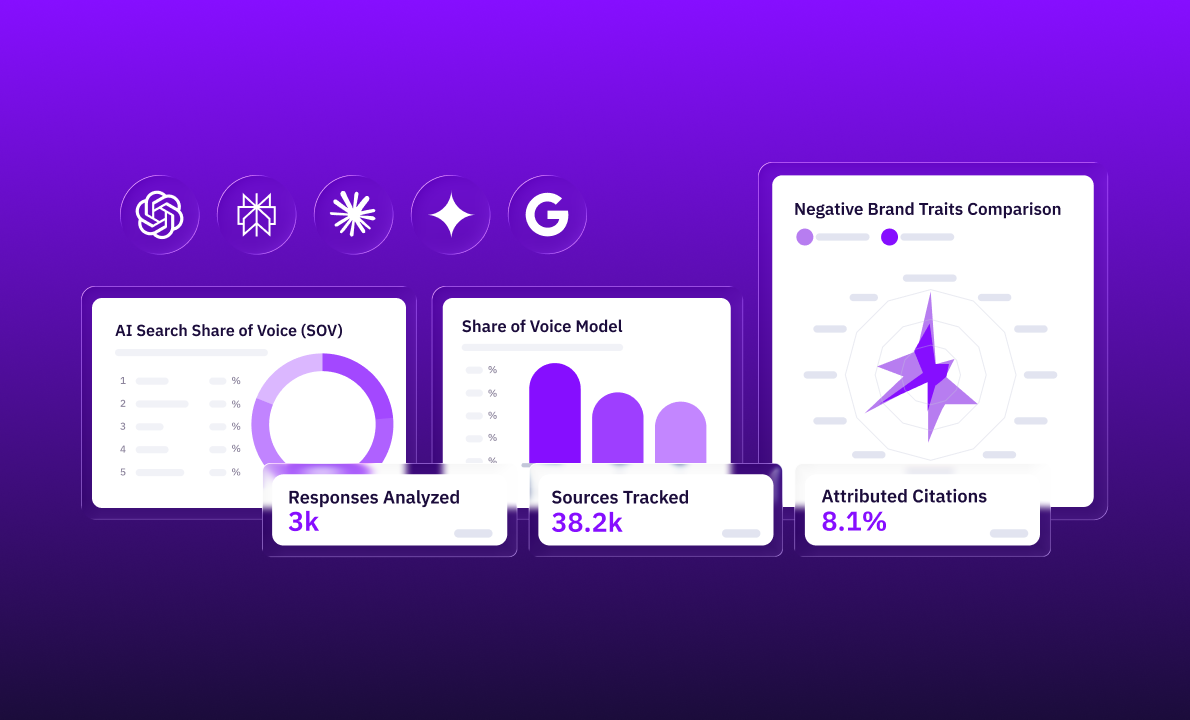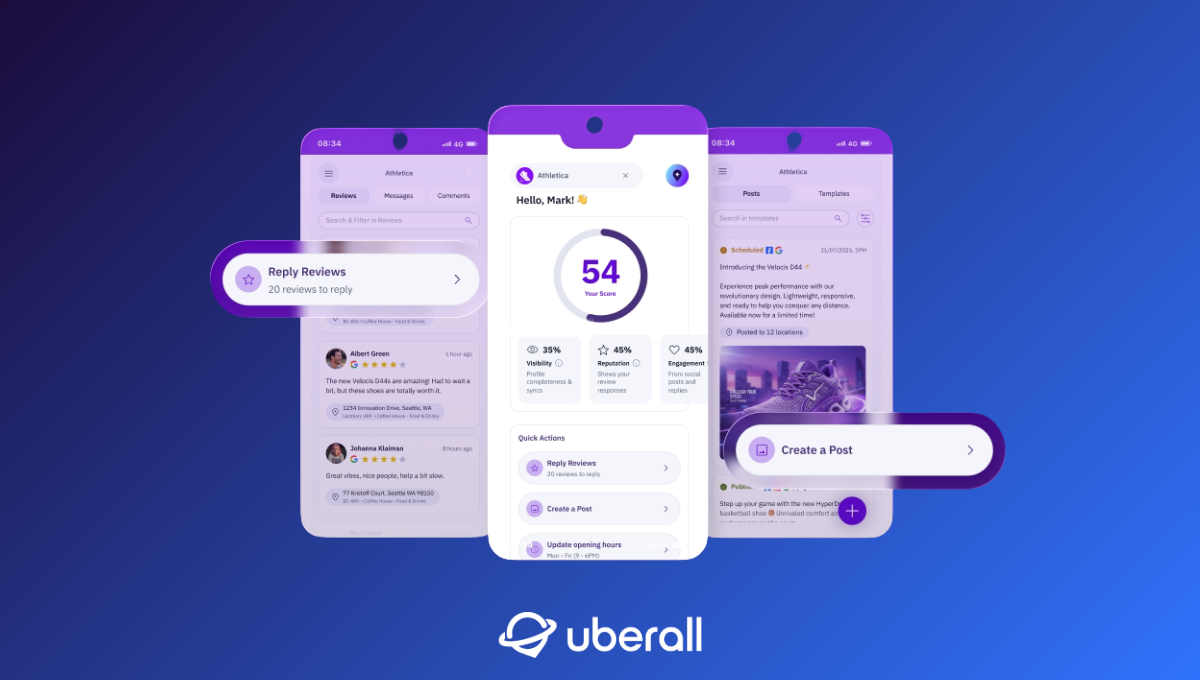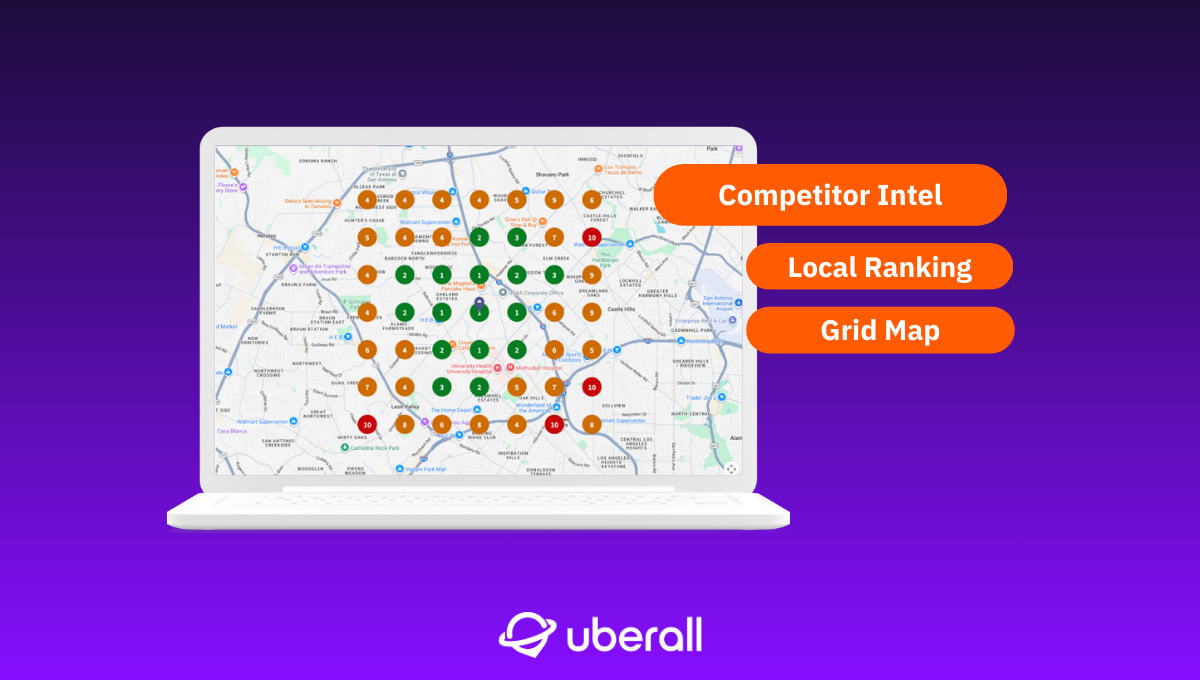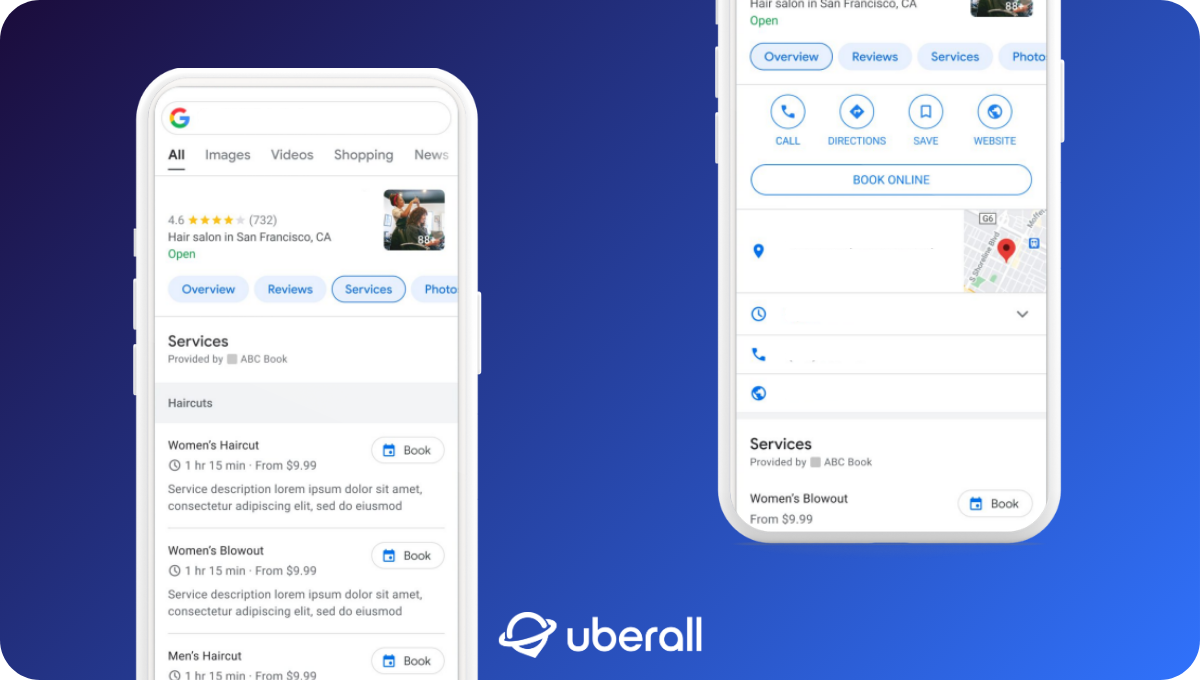
20 Customer Review Websites For Your Local Business
Your online reputation can make or break your success–and since it's mainly influenced by online reviews, you should be present on top review platforms!
Whether you're a local bakery or a global tech giant, your online reputation can make or break your success. So understanding and harnessing the power of reviews is not just advantageous—it's essential for thriving in a competitive marketplace.
But it’s not that simple anymore: the word-of-mouth has evolved into electronic word-of-mouth on a million different platforms—but here’s the 20 most important review sites you should prioritize, along with unique insights and a few tips on how to optimize your review management.
Review Sites
We all know the typical review sites that specialize in aggregating detailed feedback and ratings from customers; and we value the reliable insights into the quality of businesses.
Trustpilot
Trustpilot is used by over 2.3 million companies globally and allows businesses to request reviews actively.
Trustpilot is a widely recognized review platform that enables consumers to leave feedback about their experiences with various businesses. It provides a transparent space for customers to share detailed reviews, which helps build a company's credibility and trustworthiness.
Benefits of Trustpilot as a Review Site
Businesses can leverage positive reviews on Trustpilot to enhance their online reputation and influence potential customers' purchasing decisions.
- 238+ million reviews, 980,000+ websites reviewed
- One of the most trusted reviews sites among consumers
- Focuses on recent reviews with high user engagement
Yelp
Yelp is particularly influential in the US and Canada, with about 96 million unique monthly visitors and over 200 million reviews.Yelp is a highly influential review platform where users can share detailed feedback and ratings about local businesses.
Benefits of Yelp as a Review Site
Positive Yelp reviews can significantly boost a business’s reputation and attract new customers. Actively managing and responding to Yelp reviews helps businesses engage with their community and improve customer satisfaction.
- High trust factor among high-intent consumers
- Rich user-generated content and voice search compatibility
Yellow Pages
Yellow Pages is a long-standing directory and review platform where users can find information about businesses and services in their local area. Customers can leave reviews and ratings for businesses listed on Yellow Pages, helping others make informed decisions based on peer feedback.
Benefits of Yellow Pages as a Review Site
Positive reviews on Yellow Pages can enhance a business's visibility, attract more customers, and improve its reputation within the local community.
- Established brand trust benefiting SEO marketing
- Local business focus with comprehensive listings
Foursquare
Foursquare is a location-based review platform that allows its 55 million monthly active users to discover and review local businesses, including restaurants, shops, and entertainment venues. It leverages user-generated reviews and ratings to provide personalized recommendations based on location and preferences.
Benefits of Foursquare as a Review Site
Foursquare helps improve local search visibility with detailed business information and user reviews.
- Tech-savvy user base
- Detailed venue information
Search Engines
Search engines go beyond mere information retrieval systems to include comprehensive review functionalities, allowing users to assess and critique businesses directly within search results pages. So this really is the first impression you’ll make with potential customers.
Google Business Profile, formerly known as Google My Business, is an essential platform for managing a business's online presence across Google Search and Google Maps. Reviews are one of the most important ranking factors, helping businesses appear prominently in local search results.
Benefits of Google as a Review Site
Google is the go-to platform for most users looking for local business reviews.
- Biggest search engine with highest online visibility
- Integrated with Google Maps, offering free analytics tools
Bing
Bing Places for Business is Microsoft's local listing platform, where businesses can manage their online presence including customer reviews. Being integrated with other Microsoft services, it serves over 1 billion monthly users.
Positive reviews on Bing can enhance a business's credibility and improve its local search rankings, attracting more local customers.
- Typically older users with higher disposable income
- Integrated with other Microsoft services
Apple (Maps + AppStore)
Apple Business Connect is an important platform for local businesses, allowing users to leave ratings and reviews directly on their business listings. Positive reviews on Apple Maps can enhance a business's visibility and credibility, attracting more customers through improved local search rankings.
Benefits of Bing as a Review Site
Apple Maps (and the AppStore) are crucial for reaching iOS users.
- Direct integration with Apple devices and seamless navigation
- High user engagement with typically higher disposable income
Amazon
Amazon is a global e-commerce giant that allows customers to leave reviews and ratings for products sold on its platform. Reviews on Amazon play a crucial role in influencing purchasing decisions, as they provide insights into product quality, performance, and customer satisfaction.
Benefits of Amazon as a Review Site
Positive reviews can increase a product's visibility and credibility.
- Reviews being an integral part of the marketplace dynamics
- Direct influence on sales via the platform
Social Networks
Social networks are vibrant hubs where users freely share their experiences and opinions about products, services, and businesses—so this is where consumer perceptions are shaped, through community feedback.
Besides being the #1 social network with nearly 3 billion active users, Facebook serves as a prominent review platform. Why? Because users leave feedback and recommendations about businesses, products, and services on both their profiles and companies’ pages. Reviews on Facebook contribute to a business's credibility and can influence potential customers' decisions.
Benefits of Facebook as a Review Site
Facebook is a powerhouse**for customer reviews and recommendations**.
- High user engagement with viral potential
- Reviews are integrated with business pages
Instagram, primarily a visual social media platform, also serves as an informal review space where users share their experiences with businesses through photos, stories, and captions. Positive mentions and tags can significantly boost a business's visibility and reputation, influencing followers' perceptions and attracting new customers.
Benefits of Facebook as a Review Site
Instagram is increasingly important for businesses, allowing for visual reviews and user engagement through stories and posts.
- High user interaction through comments and direct messages
- User-generated content, including influencer reviews
LinkedIn is vital for B2B companies, offering a professional platform for customer reviews and business networking.
LinkedIn is a professional networking platform that also serves as a valuable review and recommendation site for businesses. Users can leave reviews and endorsements on company pages and individual profiles, highlighting their experiences and interactions.
Benefits of LinkedIn as a Review Site
Positive reviews and recommendations on LinkedIn enhance a business’s credibility.
- Professional audience with a strong B2B focus
- Attraction of new clients, partners, and top talent
Review Sites for Tourism
Review sites dedicated to tourism cater specifically to travelers, offering comprehensive reviews and recommendations on destinations, accommodations, and attractions worldwide.
Booking.com
Booking.com is a leading online travel agency that provides a platform for customers to book accommodations worldwide. It also serves as a prominent review site where travelers can share their experiences and rate hotels, resorts, apartments, and other lodging options.
Benefits of Booking.com as a Review Site
Positive reviews on Booking.com can significantly influence potential guests' decisions, boosting a property's visibility and bookings.
- Comprehensive hotel reviews with user-generated content
- Seamless booking process to enhance customer satisfaction
TripAdvisor
With 463 million monthly users, TripAdvisor is a leading review platform primarily focused on travel and hospitality experiences—so travelers share detailed reviews, ratings, and photos of hotels, restaurants, attractions, and more.
Benefits of TripAdvisor as a Review Site
Businesses benefit from positive reviews on TripAdvisor as they can attract tourists and improve their visibility within the competitive travel industry.
- Detailed reviews with visual content
- Significant influence in travel decisions
Expedia
Expedia is a renowned online travel booking platform where customers can leave reviews and ratings about hotels, flights, vacation packages, and other travel services. Positive reviews on Expedia can increase a hotel's visibility and attract more bookings from travelers looking for trusted accommodations.
Benefits of Expedia as a Review Site
Expedia is a top travel site where customer ratings and reviews can influence search rankings and bookings.
- High user trust and engagement
- Integration of booking services
Review Sites for Restaurants
Dedicated to culinary experiences, restaurant review sites offer detailed assessments of dining venues, highlighting aspects such as food quality, service efficiency, and overall dining ambiance.
OpenTable
OpenTable is essential for restaurants, allowing users to rate dining experiences under various categories.
OpenTable is a premier review platform for the restaurant industry, allowing diners to leave detailed feedback about their dining experiences. Positive reviews on OpenTable can significantly boost a restaurant's reputation, attract new customers, and increase reservations.
Benefits of OpenTable as a Review Site
By actively managing and responding to reviews, restaurants can enhance customer satisfaction, build loyalty, and improve their overall service quality.
- Detailed restaurant reviews and visual content
- Integration with booking services and menu overviews
Zomato
Zomato is a prominent review platform and restaurant discovery service where users can rate and review dining establishments. It's widely used globally for finding and sharing dining experiences, with detailed reviews covering food quality, service, ambiance, and overall value.
Benefits of Zomato as a Review Site
Positive reviews on Zomato can significantly boost a restaurant's visibility and attract new patrons.
- Detailed food reviews and top lists
- Combining star ratings and user credibility scores
Review Sites for Services
Services-oriented review sites focus on evaluating the performance and reliability of service providers across diverse sectors, aiding consumers in making informed decisions based on peer feedback and ratings.
WebMD
WebMD is crucial for healthcare providers, offering detailed reviews of medical practitioners and services.
WebMD is a trusted health information platform where users can find medical advice, resources, and reviews about healthcare providers and services. Patients can leave reviews about doctors, hospitals, clinics, and other healthcare facilities on WebMD.
Benefits of WebMD as a Review Site
Positive reviews on WebMD can build trust and credibility for healthcare providers, attract new patients, and improve their online reputation.
- Doctor Finder feature with detailed medical reviews
- High user trust to build long-term patient relationships
Doctor.com
Doctor.com is a comprehensive healthcare provider directory and review platform where patients can leave feedback and ratings about their experiences with doctors, dentists, and other healthcare professionals.
Benefits of Doctor.com as a Review Site
Managing reviews on Doctor.com is crucial for healthcare providers to maintain a positive online presence
- Healthcare-specific reviews with high credibility
- Including reputation management tools
Viator
Viator is a leading platform for booking tours, activities, and attractions around the world, and it also serves as a review platform where travelers can share their experiences. Users can leave reviews and ratings for tours and activities they have booked through Viator, helping other travelers make informed decisions.
Benefits of Viator.com as a Review Site
Positive reviews on Viator can increase the popularity and credibility of tours and activities, attract more bookings, and enhance the reputation of tour operators and local guides.
- Specialized in experiences and attractions with visual content
- Detailed reviews and peak time information, plus booking integration
Angi
Angi—formerly Angie’s List—is a trusted review platform primarily focused on service-based businesses such as contractors, plumbers, and home service providers. Users can leave detailed reviews and ratings based on their experiences with various service providers.
Benefits of Viator.com as a Review Site
Positive reviews on Angie's List can significantly boost a business's credibility and attract new clients, as potential customers often rely on these reviews to make hiring decisions.
- Trusted service reviews based on users’ experiences
- Membership-based credibility and contractor connections
And we don’t want to leave it unmentioned: there’s plenty of other review platforms. And while we’re at it, why not leave us a review on G2 Crowd or Capterra in case you’re a customer of ours—and if not, reach out to us!
Why Reviews Matters
Receiving reviews is not just about maintaining a positive image; it directly affects your business's discoverability and competitiveness in local markets. Here’s why it’s crucial:
- Local SEO: Positive reviews improve local search rankings.
- Consumer Trust: Potential customers choose businesses with positive reviews.
- Feedback Loop: Customer experiences help you improve your business.
BrightLocal found:
- 87% of consumers read online reviews for local businesses.
- 79% of consumers trust online reviews as much as personal recommendations.
- 57% of consumers will only use a business if it has four or more stars.
- 89% of consumers read businesses' responses to reviews.
Best Practices for Review Management
To effectively manage reviews across these platforms:
- Monitor: Set up alerts for new reviews to respond promptly.
- Respond: Address both positive and negative reviews professionally.
- Encourage: Ask satisfied customers to leave reviews.
If you need more than this checklist, reach out to our experts. They’re looking forward to bringing your review management on a whole new level.
Ready to Transform Your Business?
Connect with our partnership team to learn how Uberall can help you achieve similar results. Get a personalized consultation and discover the opportunities waiting for your business.
Resources











